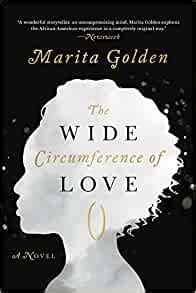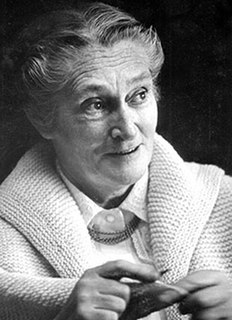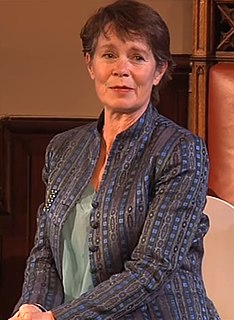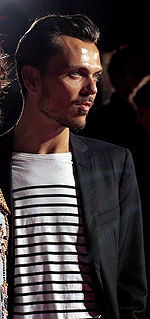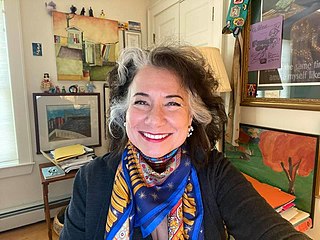A Quote by Marita Golden
My mother used to do all the things that were important to her after midnight. ... Sometimes I'd sneak downstairs and see her knitting, or reading, or writing letters. I'd think of her as a thief, stealing the tail end of the day, the hours nobody else wanted or used.
Related Quotes
(knitting while on a motorcycle) "For several years she knitted in secret (my father would not approve; she was to concentrate on motorcycling and LEAN into the curves, etc), and used a small circular needle (socks and mittens) in order to keep the knitting in her pocket until they were under way; then she leaned back slightly so Gaffer couldn't feel the movement of her hands. On the interstate one day, they were slowly passing a semi and my father happened to see the truck driver laugh and point out my mother's knitting to his passenger. Whoops-
My youngest sister, Cindy, has Down syndrome, and I remember my mother spending hours and hours with her, teaching her to tie her shoelaces on her own, drilling multiplication tables with Cindy, practicing piano every day with her. No one expected Cindy to get a Ph.D.! But my mom wanted her to be the best she could be, within her limits.
All of us--all who knew her--felt so wholesome after we cleaned ourselves on her. We were so beautiful when we stood astride her ugliness. Her simplicity decorated us, her guilt sanctified us, her pain made us glow with health, her awkwardness made us think we had a sense of humor. Her inarticulateness made us believe we were eloquent. Her poverty kept us generous. Even her waking dreams we used--to silence our own nightmares.
I think Eleanor Roosevelt always had a most incredible comfort writing letters. I mean, she was in the habit of writing letters. And that's where she allowed her fantasies to flourish. That's where she allowed her emotions to really evolve. And that's where she allowed herself to express herself really fully, and sometimes whimsically, very often romantically. And it really starts with her letters to her father, who is lifelong her primary love.
Sometimes," I ventured, "it doesn't occur to boys that their mother was ever young and pretty. . . I couldn't stand it if you boys were inconsiderate, or thought of her as if she were just somebody who looked after you. You see I was very much in love with your mother once, and I know there's nobody like her.
I think her Grandmother Hall gave her a great sense of family love, and reassurance. Her grandmother did love her, like her father, unconditionally. And despite the order and the discipline - and home at certain hours and out at certain hours and reading at certain hours - there was a surprising amount of freedom. Eleanor Roosevelt talks about how the happiest moments of her days were when she would take a book out of the library, which wasn't censored.
If I look back, my mother was always out. I can remember the perfume and her scarlet chiffon dress and crystal beads, going to a party. She used to play her violin at restaurants later on in life and at old people's homes. She loved the races, which she used to take me to as a child: our carpets were bought with her winnings. Loved her chickens.
Ultimately I think I learned a lot from my mother - the way she used fashion to make herself feel better; it was a tool she had and she used it very well. Fashion for her wasn't so far as an escape, but certainly a time where she would sit on her own and prepare what she wanted to wear the next day - it turned into bit of a ritual.
